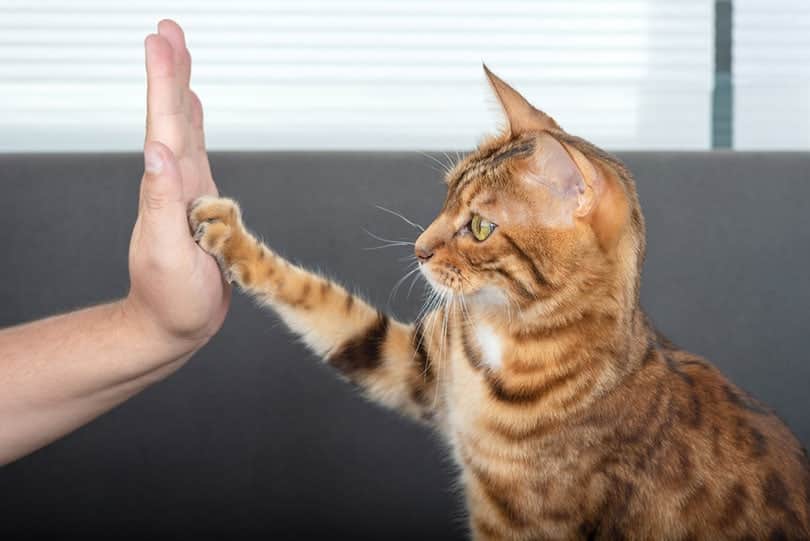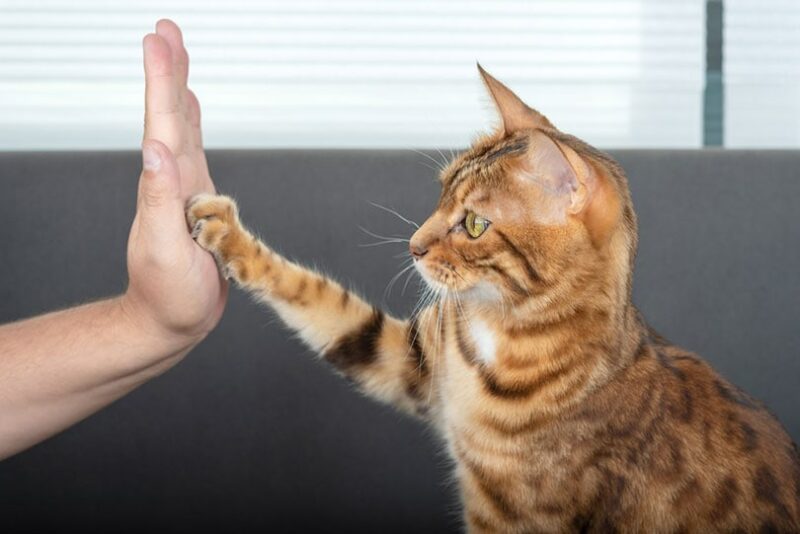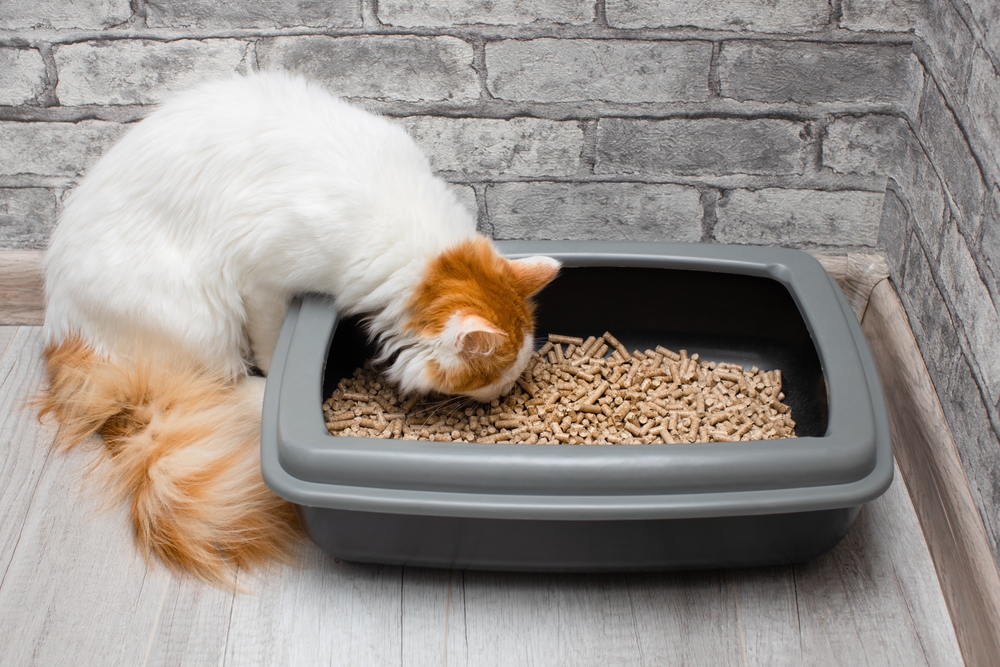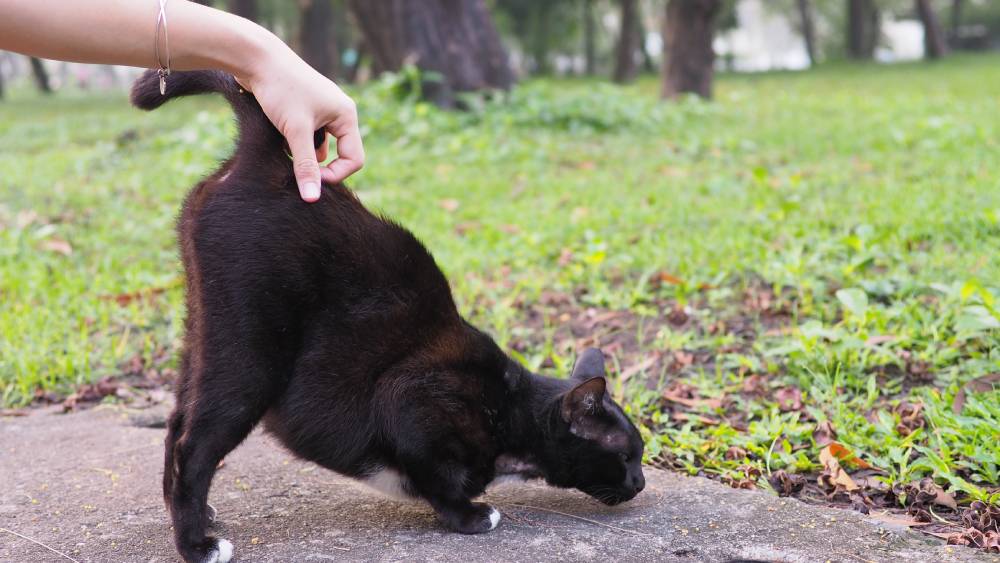While some cats love to meet new people and explore novel environments, others emphatically don’t. Particularly skittish cats will sometimes disappear entirely in the presence of visitors. While some cats simply prefer to be left alone, it’s often possible to reduce skittish behavior by creating an environment that gives your pet a sense of safety and security. Cats that feel safe and secure in their environment are less inclined to run off the second someone appears at the door. Keep reading for 10 tips and tricks you can use to make your cat less skittish.
Top 10 Tips on How to Make a Cat Less Skittish
1. Provide a Safe Space
Cats do best when they feel comfortable and secure in their environment, which often means having a place where they can go to feel safe, secure, and protected. Provide your cat with a hideout they can retreat to when interactions with kids, other pets, or strangers become overwhelming.
Furnish it with items or furniture that your cat is fond of, such as a nice cat bed, an enclosed box-like hideaway, and a cat tower or another high perch.
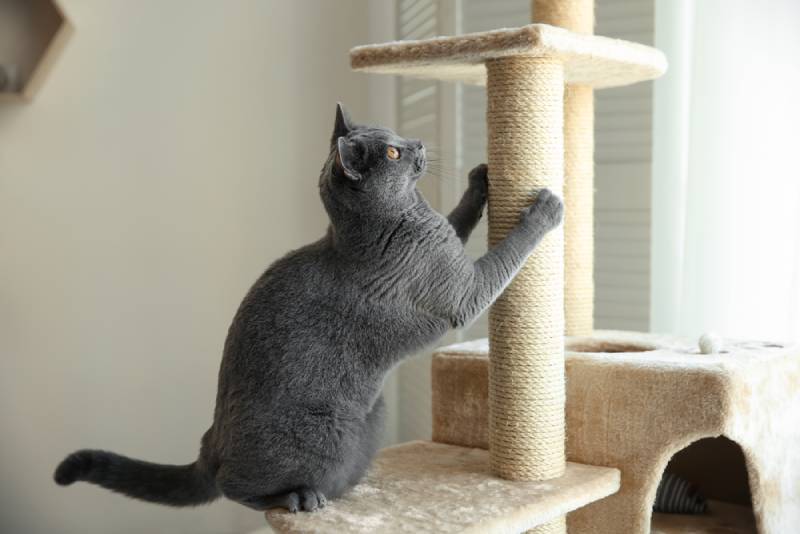
2. Add Cat Trees
Consider adding a cat tree to your living room or where you often entertain visitors. Cats are naturally curious, but they will not engage that curiosity at the expense of their sense of safety. Give your pet somewhere nice and high to sit, where they can keep an eye on your human friends. Your cat may be more likely to stay and observe from afar if they have a nice secure cat tree to hang out in.
Alternatively, if you want to surprise your cat with something cool, check out the Hepper Hi-Lo Cat Scratcher. It's not just a scratcher; it's a piece of modern furniture that your cat can play on. It's got a curvy design that's perfect for stretching and moving, and it's built tough with strong birch plywood and thick B-flute cardboard. You can adjust it to three different heights, which keeps cats entertained. Plus, it won't break the bank! Our cats love it, and we do too.
At Catster, we’ve admired Hepper for many years, and decided to take a controlling ownership interest, so that we could benefit from the outstanding designs of this cool cat company!
3. Stay in One Room During Visits
Try to spend most of your time in one room or part of the house once your visitors arrive to keep your cat from becoming anxious. Staying primarily in one or two rooms makes it easy for your cat to avoid stressful encounters while not increasing their distress by substantially altering their routine.
Make sure to give your visitors tips on the best way to win feline trust. Cats generally prefer to do the approaching and often run off when strange people insist on trying to interact. Greeting a cat closer to their level and not staring at them are other ways to put cats at ease.
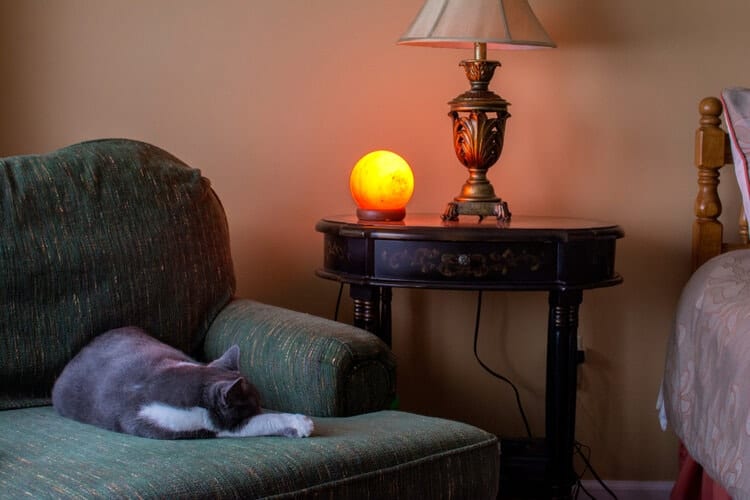
4. Reward the Positive
Have a few treats ready to hand out if your cat decides to make an appearance. Cats may be willing to change their behavior in response to positive encouragement involving treats and love. Give your pet the space and time they need to feel comfortable around new people, and then reward them with tons of cuddles (and some tasty treats) when they decide to give the new person a sniff. Ensure your visitors understand the importance of containing their enthusiasm when your buddy suddenly appears for the first time, to prevent setbacks.
5. Use Food
Cats generally like food and are prone to warm up to those who regularly feed them. If you’re trying to get a cat to sweeten toward a housemate, consider having that person take responsibility for giving your cat one meal per day. But take things slowly and make sure to transition over time. Let the other person “observe” a few times, then allow them to take over while you’re still in the room.
Eventually, if things proceed as planned, you won’t need to be there, and your pet will most likely become more comfortable around your new friend or housemate.

6. Try Pheromones
The feline sense of smell is central to how cats see and understand the world. Calming scents often help relax fearful cats. Commercial products designed with cats in mind are often good choices, as they give you non-toxic options that sometimes lower feline stress levels.
7. Tempt With Toys
Leave a few (but not all) of your cat’s favorite toys in areas frequented by visitors, and make sure a few are always around when frequent guests come to call. Add a bit of fresh catnip before your guests arrive so your cat begins to associate visitors with positive experiences, like getting fresh catnip.
You can give your cat a few treats if your pet enters the room with your guests, but try to move things along slowly. Cats warm up to people in their own time and reach out once they feel comfortable. Allowing your cat to engage at their own pace is critical to creating the sense of safety they need to meet new people confidently.
Finding a toy that your cat enjoys, is genuinely drawn to, and is excited to play with can be a challenge. That's why having a few options is always a good idea until you get an idea of what gets them moving. We love the Hepper Catnip Stick and Whale Kicker for different reasons. For cats who need a little encouragement in playing, the stick is packed full of organic catnip enticing enough to lure in the laziest of felines. The Whale is a great option for cats who love to hunt, pounce, and kick! Both are extremely durable, and can be cleaned and reintroduced for play days yet to come. Find out which is best suited to you below. At Catster, we’ve admired Hepper for many years and decided to take a controlling ownership interest so that we could benefit from the outstanding designs of this cool cat company!


Hepper Catnip Stick
Hepper Whale Plush
Contains Catnip
Safe for KIttens
Self-play
All-Natural
Washable
8. Educate Human Visitors
Cats often become anxious in response to human body language that kitties understand as aggressive. Repeated attempts to engage with fearful cats only exacerbate the problem, as these well-meaning attempts usually make cats more wary. Ensure your visitors understand the importance of allowing your cat to approach them. Winning the confidence of a cat takes time and patience, so let your visitors know they may need to give your pet time to get used to them.
9. Keep It Quiet
Felines have sensitive hearing, so loud noises (including unfamiliar doorbells) can often drive them away. Loud and raised voices can also convince kitties that making themselves scarce is best.
Try to keep things reasonably quiet while hanging out with your friends to encourage your cat to join in. Even well-adjusted cats will often escape when faced with too much unbridled human merriment.
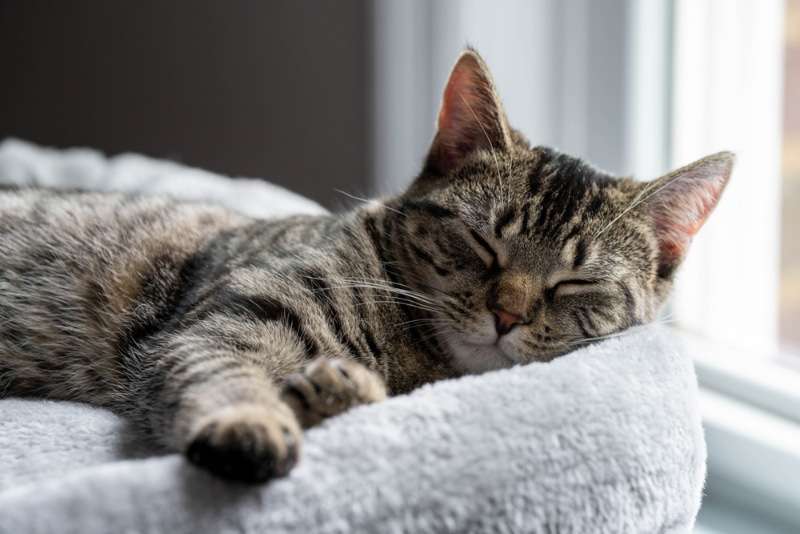
10. Thank Your Cat With Cuddles
Give your cat lots of love and attention as soon as your guests leave, to ensure your buddy feels safe and secure. Cats deserve to feel a sense of comfort, and they should be assured that we respect their limits and needs. Cats, like humans, often bond with those who see, respect, and celebrate their individuality, including their choices when interacting with people.
Keeping your cat comfortable and feeling secure when you are away will have them well rested and ready to play when you return. The Hepper Nest is a modern cat bed designed to meet the specific needs of cats. Its high sides offer a sense of security and the bowl shape gives support like a warm hug from their favorite person. Learn more about why your cat will thrive in your absense with the Hepper Nest by clicking here.
At Catster, we’ve admired Hepper for many years and decided to take a controlling ownership interest so that we could benefit from the outstanding designs of this cool cat company!
Conclusion
Cats are skittish for various reasons, including a lack of exposure to strange humans as kittens. Reducing your cat’s stress and anxiety when encountering unknown people and situations is ultimately the best way to reduce their skittishness. Give your cat a place to retreat when they feel stressed, and make sure to make it inviting with cozy places to nap.
Limit your interactions with visitors to one or two rooms to give your pet a sense of safety and allow them to greet your visitors on their own time. Eventually, your cat will join your guests instead of hiding under the bed.
See Also:
- How to Make a Skittish Cat Friendly: 10 Great Ways
- Why Is My Cat So Skittish? 5 Vet-Reviewed Reasons & Care Tips
Featured Image Credit: Svetlana Rey, Shutterstock

